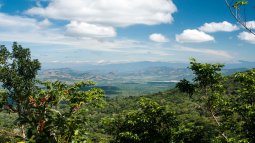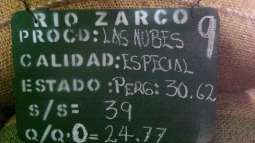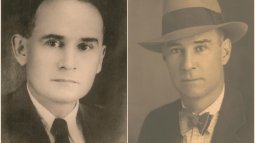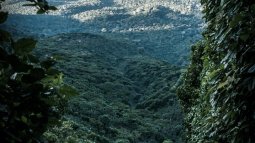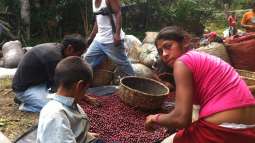Isidro Batlle purchased this land in the early 1920s and inspired by its altitude, gave it the name "Las Nubes" (The Clouds). Planted predominately with the Bourbon variety, Las Nubes boasts almost 100 years of coffee production. Arguably more important is the extensive soil structure and development that can be achieved over this time span. Las Nubes is managed by Eduardo Moran Larin, the administrator of the farm. Currently, 15 manzanas of land are dedicated to a developmental project involving the Typica, Kenya, and Castillo varieties in an attempt to achieve more roya-resistant plants. They are also experimenting with reducing the density of plants per manzana in an attempt to increase average yield and production in the future. Eduardo claims that the quality of coffee coming out of Las Nubes is due to its ideal altitude combined with their fertilization and foliage management. Overall, the focus at Las Nubes lies entirely in the final quality of the cup. From when a seed is planted to the point that it's cherries are harvested, Las Nubes is constantly striving to take every action possible in improving and maintaining its production of specialty coffee.
Coffee was first cultivated in El Salvador in the 19th century, and it its beginnings it was only for domestic consumption. In the middle on the century, the government encouraged the people giving tax breaks, exemption from military service for coffee workers and elimination of export duties for new producers. By 1880, coffee was an exportable product and was becoming more important to the economy.
Coffee production flourished throughout the 20th century, reaching its peak in the late 1970s. By 1980, coffee was responsible for the 50% of the gross domestic product. The civil war of 1980 affected the production of coffee and the production was decreased.
Ending the civil war, Salvadorian producers started investing on technology in the farms, and also new coffee varieties were planted and the Institution of Coffee was created. All of these important factors, helped to develop the coffee industry. In the following years, coffee production becamean important economic factor in El Salvador.
The coffee of El Salvador is known for its old-growth heirloom Bourbon variety, which was first cultivated in the early 1800s. El Salvador, compared to its counterparts in the region, has preserved a substantial amount of Bourbon varieties due to the civil war: During the war years, while other countries were introducing Catimors and Catimor hybrids, El Salvador's attention was elsewhere, and the heirloom varieties remained. Farms now have old-stock Bourbon trees (as old as 50–80 years old in extreme cases).
—Piero Cristiani


